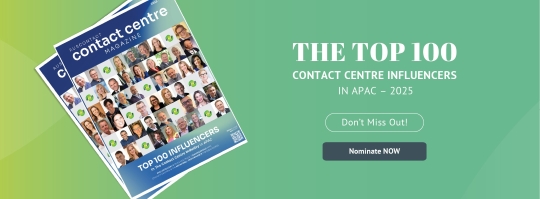Working in a contact centre can be a challenging and fast-paced job, with a high demand for excellent customer service skills. However, it can also be a rewarding career with opportunities for advancement and growth. In today’s competitive job market it’s essential to stand out from the crowd and establish yourself as a top performer.
By branding yourself as a top contact centre employee you can differentiate yourself from others in the industry and improve your career prospects. This involves developing a personal brand statement that showcases your strengths and skills, maintaining a professional online presence, seeking feedback to improve your performance, attending industry events, nominating for industry awards, and being a problem solver. By following these six tips, you can establish yourself as a highly valued contact centre employee and achieve success in the industry.
-
Develop a Personal Brand
To establish your personal brand you need to identify your strengths, skills, and unique qualities that make you stand out. This will help you create a personal brand statement that communicates who you are and what value you bring to the table. With a clear brand statement you can differentiate yourself from others and establish your reputation as a top performer.
-
Professional Online Presence
In today’s digital age having a professional online presence is essential. You can showcase your personal brand by creating a professional LinkedIn profile, a personal website or blog, and joining relevant online communities. This will allow you to network with others in the industry, share your expertise, and engage with like-minded professionals.
Read More: Contact Centres in the Age of Artificial Intelligence
-
Be Proactive in Seeking Feedback
Feedback is crucial to personal growth and development. As a contact centre employee, seeking feedback from your supervisor, colleagues, and customers can help you identify your strengths and weaknesses. This will enable you to improve your performance and take your career to the next level.
-
Attend Industry Events
Industry events such as conferences and seminars provide an excellent opportunity to showcase your expertise, learn about the latest industry trends, and network with other professionals. By getting involved in speaking engagements or panel discussions, you can demonstrate your knowledge and experience, and establish your reputation as a top performer.
-
Nominate to Auscontact Annual Awards
The Auscontact Annual Awards recognise excellence in the contact centre industry and provide an opportunity for you to showcase your achievements to the wider industry. By submitting your accomplishments, you can highlight your skills and expertise and distinguish yourself from others in the industry.
Read more: Auscontact Annual Awards
-
Be a Problem Solver
Finally, being a problem solver is a critical skill required in a contact centre. As a top performer, you should have a reputation for being a problem solver. You can achieve this by actively seeking out and resolving customer issues, collaborating with colleagues to identify and solve operational problems, and sharing your expertise with others in the industry.
Working in a contact centre is not only a challenging job but also a rewarding career. The contact centre industry demands top-notch customer service skills, and as a result, employees must stand out from the crowd to excel. By branding yourself as a top performer, you can differentiate yourself from others and improve your career prospects. Developing a personal brand statement, maintaining a professional online presence, seeking feedback, attending industry events, nominating for industry awards, and being a problem solver are the six tips to establish yourself as a highly valued contact centre employee. These tips require commitment and dedication, but they can help you achieve your professional goals and take your career to the next level. With a clear personal brand and a reputation as a top performer, you can succeed in the contact centre industry and be proud of your accomplishments.














